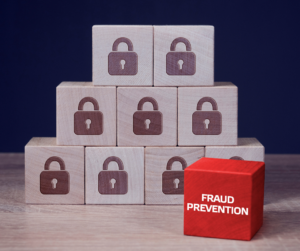 Fraud occurs in organizations of all sizes. However, small businesses, particularly new ones, face unique risks because they often can’t afford to invest in pricey fraud-prevention tools. Fortunately, there are simple yet effective methods that can lower the chance of fraud, regardless of how small or new your business is.
Fraud occurs in organizations of all sizes. However, small businesses, particularly new ones, face unique risks because they often can’t afford to invest in pricey fraud-prevention tools. Fortunately, there are simple yet effective methods that can lower the chance of fraud, regardless of how small or new your business is.
Recognize the Risk
Fraud schemes can involve employees (occupational fraud) or third parties (including vendors, customers, and cybercriminals). In some cases, employees and outsiders act together to commit fraud. Third-party fraud includes identity theft, credit card scams, bank fraud, and cyber-related schemes such as ransomware attacks. Occupational fraud typically falls into one of three categories: asset misappropriation, corruption (such as bribery), or financial statement fraud.
Although these threats may appear overwhelming, keep in mind that they all have the same goal: to steal your company’s money or assets. Once you realize the risk, you may concentrate on fortifying your defenses.
8 Suggestions
Internal controls are the best line of defense. Your business is more vulnerable to fraud if you lack controls, permit owners and managers to disregard rules, or are sloppy about staff oversight. If you’re new to business and battling fraud, the following suggestions are a fantastic place to start:
- Keep business and personal accounts separate. Personal accounts are frequently used for commercial purposes by lone entrepreneurs and new business owners. However, it is critical to establish separate business bank and credit card accounts as soon as possible. This will make it easier to track and report on the financial performance of your company, as well as spot odd trends quickly.
- Use of anti-fraud tools. Most banks offer their small business customers anti-fraud solutions. Some are free, while others have a monthly price. Ask your bank to explain the benefits and drawbacks of each approach.
- Reconcile financial accounts on a regular basis. Once a month, go over all of your bank and credit card transactions. Notify your bank or card issuer immediately if a transaction is incorrect or unauthorized.
- Verify phone calls, emails, and messages. Phishing and other related schemes are as likely to target business owners and employees as they are individuals. Be wary of calls or texts claiming to be from your bank or credit card company, the IRS, or other official-sounding agencies. Never click on direct links or disclose critical information unless you’ve independently verified a caller or sender’s identity.
- Educate employees. Use your staff as the first line of defense against fraud. Train them on the various sorts of fraud they may encounter and how to report suspicious activity.
- Make your presence felt. Employees that commit fraud frequently do it because they believe they won’t be caught. Keep a close watch on employees, especially those that handle cash, process transactions, or work in accounting. Don’t be afraid to make inquiries and investigate anything suspicious.
- Invest in internal controls. Make sure you have policies in place for inventory, shipping and receiving, sales, payroll, and any other functions that could be vulnerable. It is not enough to simply have controls; they must also be consistently enforced.
- Implement a cyber defense program. Anti-virus and anti-malware software are essential for safeguarding your company’s data. Install the most recent software on all devices (and update it as soon as new versions become available), including on mobile phones.
An Effective Program
To be successful, a fraud prevention program does not have to be expensive or time-consuming. Contact us if you need help. We can assist you in identifying your company’s most serious threats and recommending simple, cost-effective procedures to keep fraud at bay.
© 2023







